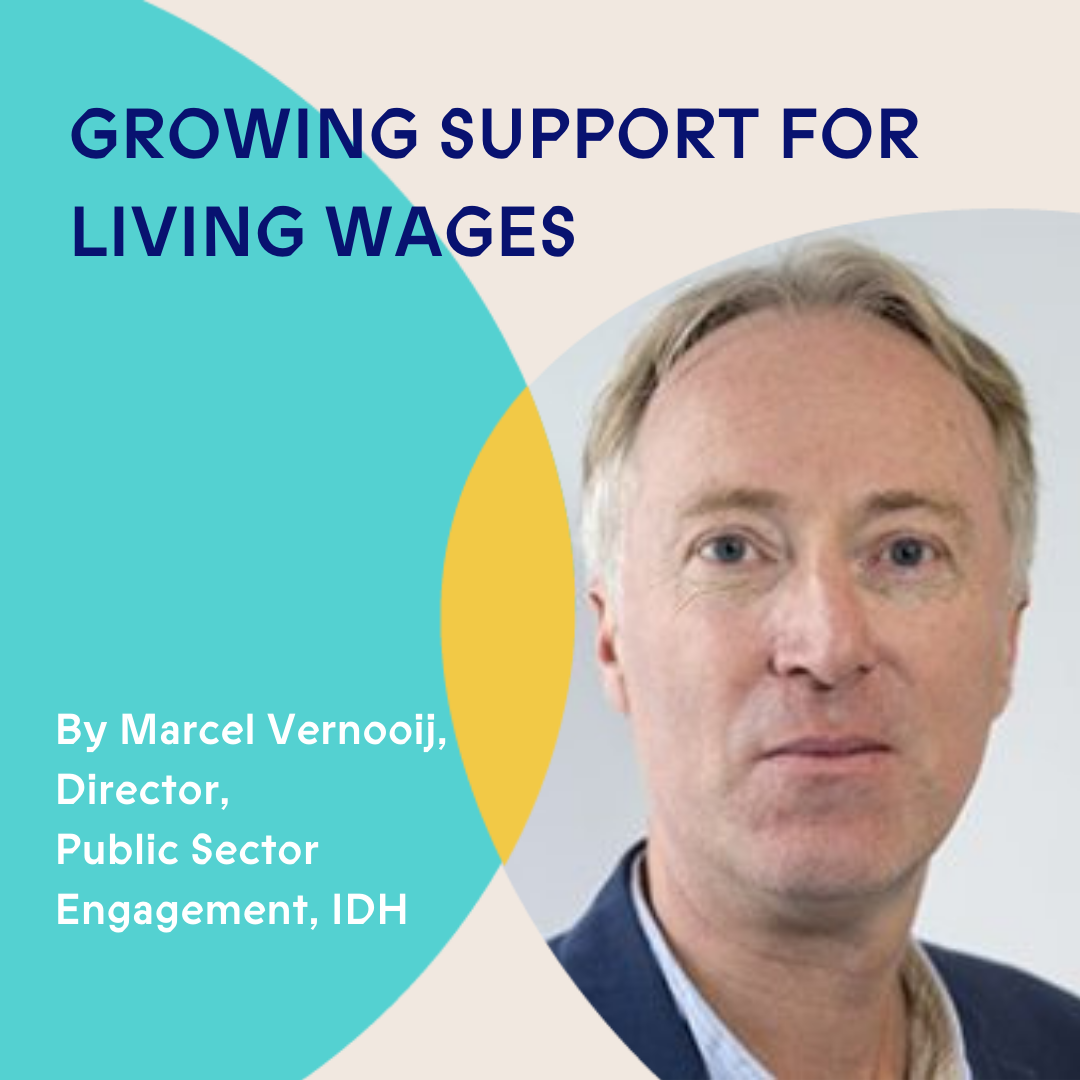Growing Support for Living Wages
Following a Roundtable co-convened in January 2024 by IDH, TASC Platform, and the World Economic Forum, Marcel Vernooij, Director of Public Sector Engagement at IDH shares updates on recent advances on the definition and operationalization of living wages at the ILO, and the road ahead for ILO, IDH and all stakeholders in global supply chains.
Living wages for a decent standard of living
One of the most effective ways to enable workers and self-employed people and their families to achieve a decent standard of living is to ensure that they earn a living wage or living income. The Preamble of the Constitution of the International Labour Organization of 1919 calls for improved conditions of labour inter alia with “the provision of an adequate living wage”. Over the years the ILO has adopted key international labour standards including for the effective implementation of minimum wages and equal remuneration. Recently, the call for living wages has gained prominence outside ILO. Several initiatives are being taken by governments, the private sector and civil society organisations, including in global supply chains. The EU is incorporating living wages/incomes in due diligence requirements and the OECD in its support for responsible business conduct. FAO is promoting true cost accounting, advancing cooperation on living income and supporting deliberations on living wages at the World Banana Forum.
What is a living wage
ILO-members have agreed to step up efforts and develop guidance on living wages. Following the agreement reached at a meeting of experts, the ILO recently adopted conclusions on wage policies, including living wages. This brings clarity on the concept and provides principles for estimating living wages.
As regards the concept, ILO denotes that a livings wage is:
“the wage level that is necessary to afford a decent standard of living for workers and their families, taking into account the country circumstances and calculated for the work performed during the normal hours of work; calculated in accordance with the ILO’s principles of estimating the living wage; to be achieved through the wage-setting process in line with the ILO principles on wage setting.”
The estimation of living wages and its translation into national monetary value has to be based on now defined principles. Methodologies used are to be evidence-based, transparent and publicly available, robust, specific and considering the regional or local context, regularly adjusted, and technically reviewed. Gender equality and non-discrimination must be promoted. Estimation of living wages should be based on assessing local costs of a basket of goods, at least including food, housing, health and education, and other necessary goods and services. The basket is to provide for a decent living standard of the worker and his/her family.
IDH’s work on living wages and living incomes
With ILO’s guidance, IDH is inspired to continue systematically estimating and closing living wage gaps. IDH is a global organization transforming markets, mobilizing investment and support to innovate business models, creating better jobs, better incomes, a better environment, and gender equity for all. We manage programs in cocoa, coffee, tea, spices, fruits & vegetables, aquaculture, palm oil, soy, tropical timber, and apparel. IDH encourages companies to provide living wages to their workers, and to cooperate with suppliers so that also their workers benefit from a living wage, or a living income in the case of farmers and their families.
IDH supports practical implementation: we have developed the IDH Roadmap on Living Wages, the Salary Matrix and related tools to identify reliable living wage benchmarks for regions where companies produce or are sourcing from, and to close living wage gaps in their supply chains.
We also bring companies together to jointly commit and share experiences. For example supermarkets in the Netherlands, Belgium and the UK jointly committed to close the living wage gap in the banana supply chain.
Next steps
ILO-members have taken up a major commitment to integrate living wages in their social dialogue and wage-setting processes, including in collective bargaining, based on the ILO key principles of wage setting. IDH stands ready to continue to offer experiences and support ILO-members. We partner with like-minded initiatives such as Forward Faster of the United Global Compact and with GIZ. We envisage a more open dialogue with tripartite ILO constituents and a better recognition of the particular importance, as well as specific socio-economic conditions, of promoting living wages in global supply chains.


